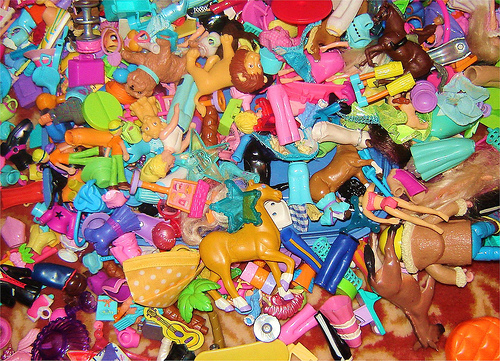June 13, 2013 — The toxic toys bill squeaked through the Committee on Ways & Means on a party-line 16 to 14 vote Wednesday, sending to the full House a measure that would require large manufacturers to report whether they use toxic chemicals in children products, then phase out those chemicals if they’re in toys that are marketed toward very small children.
House Bill 3162 passed comfortably from the House Health Committee in April with bipartisan support, but because it requires funding of about $100,000 a year from fees and penalties for the Oregon Health Authority to administer the program, it had to pass out of the budget committee before a new set of lawmakers.
Few of the legislators on the full budget committee had witnessed a public hearing where all sides of the issue could be aired before taking a vote, and the bill’s key sponsor, Rep. Alissa Keny-Guyer, D-Portland, was not allowed to testify before the full committee.
Extensive lobbying by chemical companies nearly killed the bill, and all the Republicans opposed the bill. None of the Democrats wavered, allowing the bill to pass.
“The more I read this bill, the worse it gets,” said Rep. Bruce Hanna, R-Sutherlin. He pointed out that a number of everyday children’s items like electronics were exempt from the disclosure and phase-out. “If this is so critical, why are we listing all these things that kids use so much?”
HB 3162, the Toxics Disclosure for Healthy Kids Act, is modeled after a bill in Washington that requires manufacturers of children’s products to report hazardous chemicals. Much of the bill was lifted verbatim from their law, in order to make it easier on companies to comply, although Oregon’s bill goes a step farther and asks that the companies phase out the chemicals.
Washington exempted the products Hanna mentioned because Gov. Chris Gregoire didn’t want to interfere with educational materials. Other items were exempted under pressure from special business lobbies in Olympia, according to sources at the Washington Toxics Coalition.
Rep. Dennis Richardson, R-Central Point, condemned the bill because it could hit retailers, who are not as frequently thought of as manufacturers.
The bill would apply to retailers who distribute their own brand of generic toys and children products. The Washington Children’s Safe Product Act found the worst offender was Wal-Mart, which peddles many of its own toys from China.
HB 3162 is limited to companies with at least $5 million in revenues and is phased in over several years, starting in 2015.
Matt Markee, a lobbyist for the American Chemistry Council, argued before the Health Committee that just because manufacturers put hazardous chemicals like phthalates, formaldehyde and BPA into children’s toys doesn’t mean the chemicals are at unsafe levels.
HB 3162 heads to the full House for a vote, likely next week. The bill does have Republican sponsors in both chambers — Rep. Jason Conger of Bend and Sen. Brian Boquist of McMinnville.
More from The Lund Report:
Bipartisan Bill Could Take Toxic Toys Off the Market
House Health Committee Clears Toxic Toys Bill
Image for this story by Prisoner 5413 (CC BY-NC 2.0) via Flickr.
Christopher David Gray can be reached at [email protected].